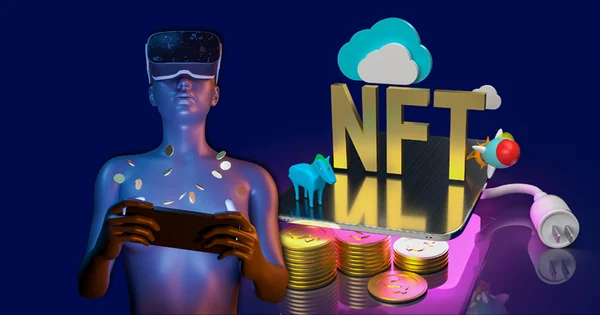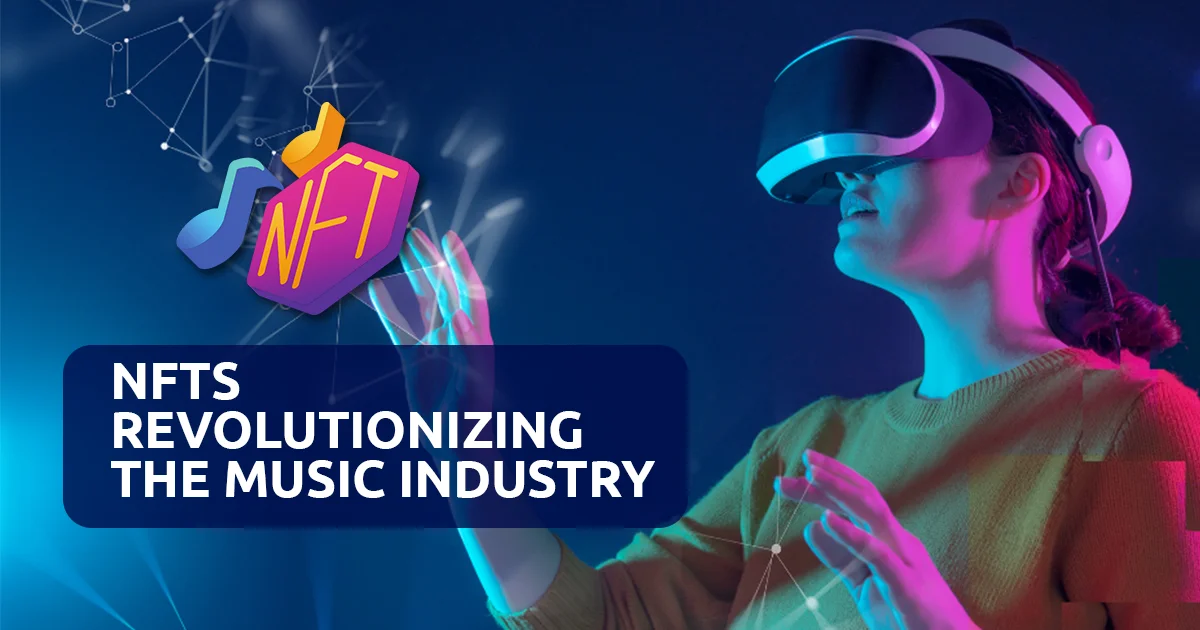How are music NFTs revolutionizing the music industry?

Introduction
The unique technology that NFTs possess is causing a revolution all over the globe, and many different businesses are getting on board with this train, the music industry being one of them. NFTs are providing artists with total creative ownership over their digital assets in addition to a new model that generates new income streams and fully eliminates the need for a middleman. The NFT requires crypto payments which can be done through a viable payment processor.
What is an NFT?
Non-fungible tokens, often known as NFTs, are the next trend to hit the web3 industry. Tokens like this often stand in for a certificate of ownership that is kept on the blockchain and refers to a certain work of art or another one-of-a-kind item. It is similar to that of cryptocurrency and crypto payments.
The potential of fan funding
The entertainment sector is moving in the direction of more democratic participation, which is another trend. Emerging forms of fan-fueled equity crowdfunding are one of the most striking examples of this phenomenon. Essentially, it is investing in music made accessible to the general public.
A song of lost revenues
The fact that non-fungible tokens may only be used once is one of the most important characteristics they possess. There cannot be two NFTs that are exactly the same. The adaptability of these materials is another facet that endears them to contemporary artists: NFTs may be programmed for particular automatic activities via the use of smart contracts, which eliminates the need for a go-between in many different instances.

Digital scarcity
Similar to how other forms of NFT art may generate scarcity, music purchased by crypto payments can do the same, which is something that digital media have not historically been able to do. NFTs provide artists with the option to produce assets that are 100 per cent unique and cannot be copied in any way. These assets may then be sold. Due to the scarcity, the supply side of the equation might become constrained, whilst the demand side has the ability to continue to expand. These promotions may also be paired with one-of-a-kind gifts to further encourage customers to make purchases. The purchases are routed through a payment processor.
Say goodbye to the middlemen.
To reach their audience, musicians have traditionally had to distribute their music via agents, studios, record labels, record shops, and other third parties. In exchange for their services, each of these companies has received a portion of the profit. In the days before the internet, when artists required a tremendous amount of resources in order to be heard, this was an absolute need.
Why should Musicians use NFTs and crypto payments?
Now, NFTs and crypto payments are completely upending the way things have always been done in the music business. Similar to the situation with art NFTs, the producers of musical works have a great deal of control over what they release, how and when they release it, and how the revenues from NFT sales and crypto payments are distributed. Musicians are able to monetize their art while maintaining complete creative and financial control over their work. Kings of Leon became the first band to release their album in the form of an NFT in the year 2021.
As is the case with NFTs in the art world, musicians are able to retain a far larger portion of the revenues when they sell directly to their fans rather than going via an intermediary. They have complete control over the promotion of their material, including its creative image and when it is released.
Boost fan engagement
Fans are able to gamble on a project or support their favourite singers via the use of NFTs, which function as a kind of crowdfunding. If a fan invests in a project and that project ends up being successful, or if the artist becomes more famous, the value of the NFT will go up. After that, he will be able to resell his NFT and make a profit.
The artist also stands to benefit from using this technique. If a fan invests money in a project, they will have a vested interest in promoting the performer, which will result in a rise in the value of the NFT. After then, the supporters become true representatives of the brand. It is also a wonderful chance for up-and-coming artists who are searching for financial support to further the development of their work. NFTs are becoming more popular as a means of democratizing the music business and making it more accessible to up-and-coming musicians.
No more live show ticket Scalping
The help that scalpers are known to give may potentially be provided through non-fungible assets and smart contracts. During this epidemic, there has been an explosion in the number of blockchain ticketing services which verify the authenticity of digital tickets. The process has been made hassle-free with the help of a viable crypto payment processor. The identities of those who purchase tickets using these channels are logged. In a similar vein, the performers have complete control over the process by which individuals purchase and resell each ticket, making it very difficult to do so.
Fan-to-Artist Access
NFTs may also come with an "access pass" that allows the purchaser access to additional content, such as behind-the-scenes films of the artist creating and recording certain songs or a more in-depth look into the artist's personal life. You may make a contract to provide fans with tiered levels of benefits, such as discounts, backstage access to events in their towns, a one-on-one video conference with the artist, and other perks. The possibilities are almost limitless!
More Access for Musicians to Sell Their Music
Musicians who were not signed with major record companies were given the opportunity to make and disseminate their music on their own terms, thanks to the rise of the internet. Unsigned musicians who wish to distribute their music and establish a meaningful relationship with their audience will find that the use of NFTs will make more donors available to them.
Conclusion
Non-fungible tokens, often known as NFTs, have quickly become popular in the fields of art and music. These digital tokens, which represent all kinds of one-of-a-kind assets in the digital world, such as artwork, music, films, and even tweets, are now being auctioned for millions of dollars. They may be purchased and traded, but there is no physical representation of them. NFTs are transforming the way artists communicate with their audience in ways that are not directly related to the financial side. NFTs provide users with novel digital experiences while also bringing artists and fans closer together. Regardless of the sector, the hype around NFTs and blockchain technology is quite genuine. Since the middle of the year 2021, an increasing number of musicians have shown an interest in the distribution of their music through NFTs.